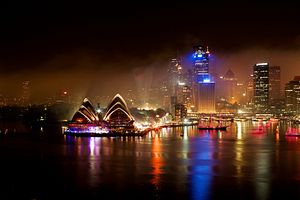Recent months have seen an increase in community frustration and organization in Sydney in response to the New South Wales (NSW) government’s laws restricting alcohol consumption and socializing in the city. Known as “lockout laws,” these restrictions include a ban on alcohol sales at large venues after 3 am and “lockouts” of new patrons beginning at 1:30 am. The laws arose two years ago as a response to incidents of nighttime violence in the city. The government made the calculation that alcohol is the primary driver of violence in the city and therefore it must be restricted.
However, the knock-on effects of these laws are proving detrimental to the city’s cultural vibrancy and nighttime economy, as well as highly damaging to the city’s reputation.
With an extremely concentrated and centralized mainstream media in Australia, isolated incidents of violence become greatly amplified. As a result, the responses to these incidents from the state, influenced by emotional polling and tabloid hysterics, become disproportionate and short-sighted.
Of course, all violence is regrettable; however, many people in Sydney feel that the NSW government is punishing the whole city for the acts of a few people. They believe that alcohol and socializing are not the root causes of violence and shouldn’t be used as scapegoats.
The issue reached its apex recently when a local entrepreneur wrote an essay on LinkedIn, titled Would The Last Person To Leave Sydney Please Turn Out The Lights, which went viral and was subsequently republished by The Guardian. The essay argued that, as a result of these laws, Sydney’s once energetic nightlife had been extinguished, and that the city had become a global laughingstock.
Australian cities rely primarily on lifestyle factors to attract both national and global talent. In the competition between modern cities for transnational elites, any perception that a city is hostile to nightlife, being described as a “Ghost Town” on Friday and Saturday nights, is going to be highly detrimental to its reputation and ability to attract necessary skills.
Civil society groups like Keep Sydney Open believe that the NSW government is failing to understand that a large range of social, cultural, and economic benefits stem from a city’s nightlife.
Many restaurants and bars have claimed that due to these restrictive laws, their businesses have suffered and their ability to maintain staff has been affected. Furthermore, the city’s creative communities also claim that the laws have been detrimental to their ability to function productively in the city.
The frustration over the laws has made allies of the city’s young progressives, who have their lives directly affected, and more classical liberal-minded people who find the restriction of personal freedoms unprincipled.
While the federal government has started to understand the importance of cities to the 21st century economy, it will rely on the cooperation of state governments to implement their vision. The primary component of this understanding is the nature of cities, how they evolve, and why policies that restrict interaction are detrimental to the city’s success.
Nonetheless, NSW Premier Mike Baird, has stood by the laws, claiming that violence has decreased, and that any adjustments to the laws are unlikely.
With Sydney’s two casinos being exempt from the restrictions, the issue of state collusion has also been highlighted. Critics say that those powerful entities that have the ability to lobby the government are being given favorable treatment. The premier has been dubbed “Casino Mike” across social media as a result.
With the next state election not until 2019, the government seems to be hoping the issue will blow over and not hinder their reelection efforts. Yet it is also possible public sentiment could intensify by then, especially if job losses increase.
The elephant in the room remains, and ignoring it or skirting around the issue won’t be a solution. Both governments and civil society organizations need to tackle the root cause of why young men are so attracted to violence, rather than accepting it as inevitable and trying to straightjacket a whole city to try prevent it.

































